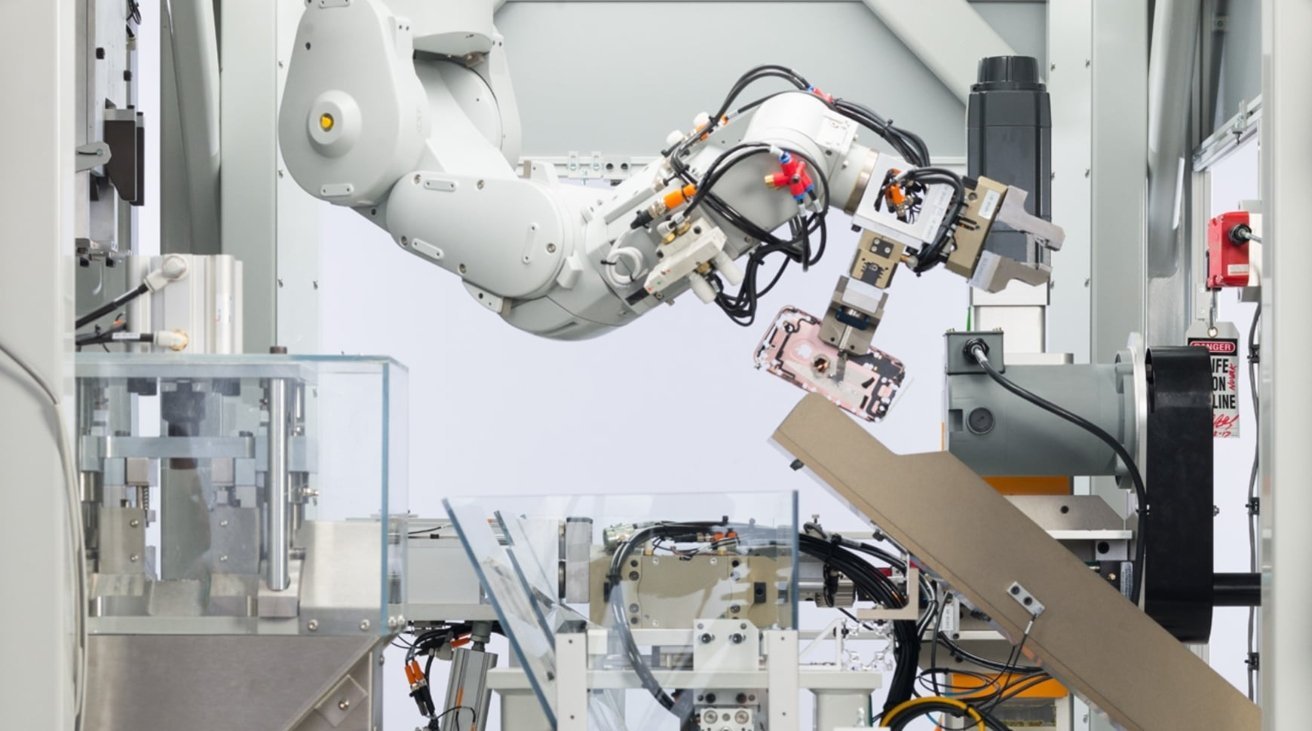Apple will eventually make the iPhone in the United States, as soon as it has the “robotic arms” to do so, CEO Tim Cook allegedly told U.S. Commerce Secretary Howard Lutnick.
The Trump Administration has long held the narrative that Apple will be bringing production of the iPhone to the United States. While the prospect of that happening is still far off, it apparently seems like there’s one little obstacle in the way, if U.S. Commerce Secretary Howard Lutnick is to be believed.
Speaking to CNBC on Tuesday, Lutnick was asked about when he expects Apple will make the iPhone on U.S. soil. His response initially raised the pledge by Apple to invest $500 billion in the United States, on practically everything but product manufacturing.
For the iPhone itself, Lutnick recalls an apparently recent conversation with Tim Cook, when he asked the Apple CEO the same iPhone manufacturing query. Cook’s reply was straightforward, with him allegedly telling Lutnick “I need to have the robotic arms.”
Cook supposedly continued, explaining “Do it at a scale and a precision that I can bring it here, and the day I see that available, it’s coming here.”
Lutnick added that Cook didn’t want to employ an army of workers as that was a risk to the company. Social unrest or a strike in China could harm Apple’s manufacturing efforts, the Commerce Secretary detailed.
However, unlike the existing human-centric assembly lines currently in use, Lutnick said that Americans will be the technicians driving the factories. They won’t be the ones putting screws into hardware, he insists, but instead will have high-paying jobs as part of a so-called “AI Industrial Revolution.”
The screws commentary echoes earlier interviews and statements from Lutnick, in reference to the large workforces Apple partners employ elsewhere.
Solving a U.S. workforce problem
Lutnick’s discussion of robotic arms is certainly a meaty soundbite. However, there’s no actual confirmation from Apple or Cook himself that the conversation took place, or what the conversational subjects actually were.
Given Cook’s proactive attempts to have a working relationship with the Trump Administration, as well as the policies of the administration itself, there probably was a conversation that took place on the topic.
Even so, the actual suggestion of using automation, robot arms or otherwise, is probably the path Apple will have to take to bring iPhone production to the U.S.
Cook has previously commented on the state of the U.S. workforce, including one 2018 discussion about its workings in China. Labour in factories is considered low-cost in the U.S., but in China, Cook views it as a highly specialized task.
Vocational training is promoted more heavily in China than in other countries, which has led to a wealth of world-class tooling engineers built up over decades. It’s this tooling skill that runs “very deep” in China, in Cook’s view.
It’s a skill set that is also not easily transferable to robots, nor can be learned quickly at all. It would require a lot of time, effort, and faith in the U.S. workforce to learn the same skills to a similar level in order to bring manufacturing to the U.S. at scale.
Regardless of whether Apple eventually uses robot arms or the human variety to make iPhones and other products in the United States, it’s something that will take quite a few years to become a reality, if at all.





